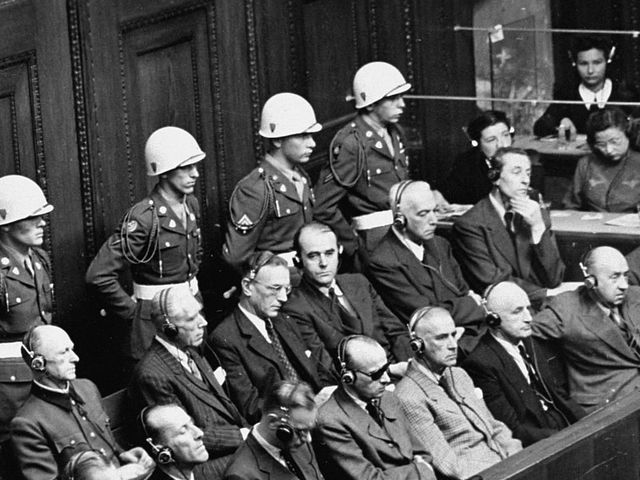Robert Stevens
Over the weekend, euro zone leaders welcomed the four month austerity programme agreed between the Eurogroup and Greece on Friday.
The agreement remains conditional on the Syriza-Independent Greeks government submitting proposals to the Eurogroup, containing the exact “reform” measures that it will implement by the end of April. According to Friday’s agreement, the measures must be “sufficiently comprehensive” and in accord with the 2012 austerity programme that the government of Alexis Tsipras has now signed on to.
No final deal is yet in place, as Syriza’s proposals have to then be agreed Tuesday by the European Commission, European Central Bank and the International Monetary Fund, known as the “troika.” Even as he tried to sell the deal as one that allowed Greece some respite, Finance Minister Yanis Varoufakis was forced to acknowledge, “If the list of reforms is not agreed, this agreement is dead.”
The Tsipras government began work on the proposals Saturday morning and details have not yet been made public. Nikos Pappas, Tsipras’ chief of staff, said Sunday, “We are compiling a list of proposals to make the Greek civil service more effective and to combat tax evasion.”
The agreement was endorsed by Germany’s governing coalition. Volker Kauder, the parliamentary leader of Chancellor Angela Merkel’s Christian Democratic Union, told Welt am Sonntag, “The Greeks have to do their homework now. Then, an extension of the aid programme can be approved by the German Bundestag. Greece has finally realised that it cannot turn a blind eye to reality.”
Thomas Oppermann, the leader of Merkel’s junior coalition partners, the Social Democratic Party, cautioned that Greece had to respond with proposals that would satisfy the Eurogroup. Offering Tsipras his “full support,” Oppermann added, “It is good that Greece is ready to carry out structural reforms. But this really has to happen now.”
Hans Michelbach, an MP for the Christian Social Union (CSU) and head of the party’s small-medium business wing, warned, “Without reliable considerations from Athens, the deal is worth nothing.” Gerda Hasselfeldt, the chair of the CSU group in Bavaria, said: “We won’t make a rotten compromise. There can be no payment without reward.”
One German government official said that German Finance Minister Wolfgang Schaeuble “believes if a country doesn’t respect the rules, we are better off without them. We can’t have a situation where we are constantly having to spend our time on a country that makes up 2 percent of the bloc’s GDP.”
The Frankfurter Allgemeine Zeitung summed up by saying, “Things will get serious on Monday.”
Syriza’s strategy since they were elected was based on trying to counter the hardline position of Germany, supported by several other countries, that Greece implement all remaining austerity measures that the previous New Democracy/PASOK government agreed. Greece held regular discussions with French President François Hollande and Italian Prime Minister Matteo Renzi, among others. The support of the Obama administration in the US, which has expressed its support for a reflationary strategy in Europe, was also solicited.
In the end this perspective failed miserably, with Greece forced to remain within the existing austerity programme and all 19 eurozone finance ministers in favour.
With a few caveats, France endorsed Germany’s position. Hollande said Saturday, “The right solution is to extend the finance allowing Greece to ensure its transition and honour its commitment.”
As the European Union displayed its reactionary character to the workers of Greece and the entire continent, Tsipras praised his capitulation to the EU as a victory. He said the deal proved the EU was “an arena of negotiation and mutually acceptable compromise and not an arena for exhaustion, submission and blind punishment.”
“We won a battle, not the war,” he said.
The Economist bluntly summed up the harsh terms to which Syriza is now committed as follows:
Syriza “was elected on a pledge to tear up Greece’s bail-outs and leave austerity behind… It is difficult to square these promises with last night’s agreement. Greece has secured no change to the terms of its epic debt, which stands at over 175% of GDP. Its behaviour will continue to be supervised by the institutions formerly known as the troika. It is obliged to refrain from passing any measures that could undermine its fiscal targets; that appears to torpedo vast swathes of its election manifesto, which included all manner of spending pledges.”
The magazine warned, “Greece still faces an immediate funding squeeze. The bail-out funds can only be released after a ‘review’ of the bail-out provisions; that, according to the agreement, will not happen before the end of April.”
Reviewing the scale of Greece’s economic crisis and the billions in due debts that must be paid back in the weeks ahead, it concluded, “The government has reached a €15 billion ceiling on T-bill [Treasury bonds] issuance imposed by the troika, and there was no suggestion… that it might be lifted. The next two months will be painful indeed.”
In response to the deal, the supposed “left” within Syriza felt obliged to make a few noises in protest.
Giorgos Katrougalos, the deputy minister of administrative reform, had announced he would resign if “red lines,” which he did not specify, were crossed.
On Sunday, Syriza’s most senior figure, 92-year-old Manolis Glezos, said the party had broken its promises to “annul the bailout, annul the troika [of bailout monitors from the European Commission, International Monetary Fund and European Central Bank] and annul all the austerity legislation.”
The government was “renaming fish as meat …without changing the actual situation.”
Pointing out that Syriza were only granted a few terminological concessions by the Eurogroup, Glezos said the troika was now known as “the institutions,” the austerity agreement “the contract” and Greece’s international lenders “the partners.”
Glezos’ comments amounted to rebellion on its knees. He concluded, “I apologise to the Greek people for participating in this illusion,” and called only for Syriza supporters to demand explanations from governing officials.
The most ludicrous statement was issued by the Communist Tendency, which is part of Syriza’s Left Platform and a section of the International Marxist Tendency (IMT).
Describing the “request to the Troika for a six-month extension of the loan agreement” as a “grave political mistake,” the statement called for, “No more retreats! The government must formulate an alternative collision plan with the blackmailers and their local lackeys, a plan that favours the working masses!”
In the most obsequious terms possible they declare, “We call upon our comrade, the Prime Minister, and the leftist ministers, to formulate an alternative plan to finance and implement the Thessaloniki programme [Syriza’s election manifesto] without relying on the loans of the extortionist ‘partners’.”
Immediately after Syriza formed a governing coalition with the right-wing xenophobic Independent Greeks, the Communist Tendency also denounced this as a “grave mistake.” One wouldn’t know from these statements that the Communist Tendency has two members on Syriza’s Central Committee. Once they spouted their rhetoric as a small opposition party. Today, they do it as the loyal opposition in a governing party committed to imposing brutal attacks on the living standards of the working class.






